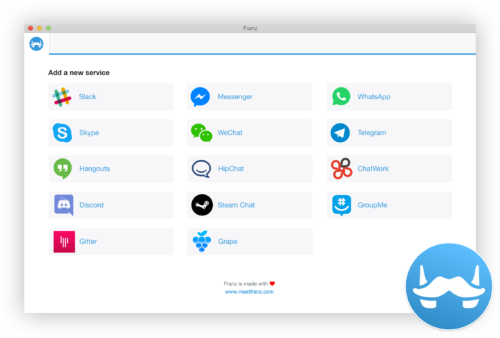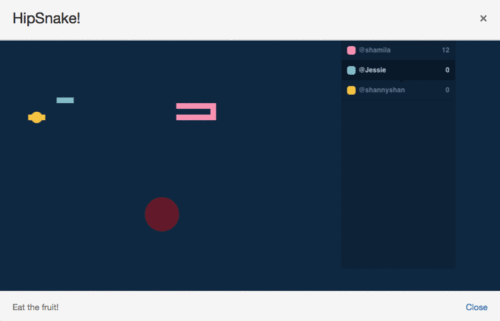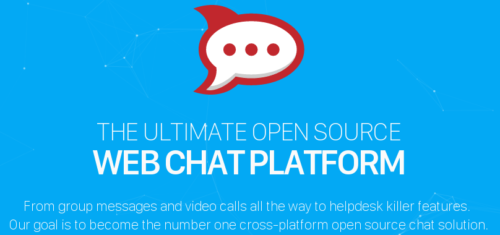Franz is a free messaging app which currently supports Slack, WhatsApp, WeChat, HipChat, Facebook Messenger, Telegram, Google Hangouts, GroupMe, Skype and many more. Download is available for Mac, Windows, and Linux.
Tag: HipChat
35 new ways to do your work right inside of HipChat
HipChat keeps extending the amazing list of integrations with other tools and services. This blog post – 35 new ways to do your work right inside of HipChat – lists some of the recently added. Included, among others, is even a multiplayer snake game.
Rocket.Chat – the ultimate self-hosted open source chat platform
Chat is becoming more and more important for team communication and collaboration (what is ChatOps?). Old school applications like Skype are being replaced with modern, web-based chat platforms, that provide group/room and one-on-one chats, file uploads, screen sharing, voice and video communications, API integration and more. There are plenty of solutions to choose from too.
Traditionally, self-hosted solutions were difficult to setup and maintain, and were lacking in integration options. So many teams choose to go for the third-party hosted approach. This is not very exciting for companies that deal with sensitive data though.
As mentioned before, at work, we are using HipChat. It’s nice, it’s free, and it integrates nicely. Lately, there has been a lot of hype about Slack, which I tried, but didn’t particularly like.
Today, however, I came across a very nice option, which seems to be a breeze to self-host and maintain – Rocket.Chat. It’s modern – written in JavaScript, it has a long list of features, and there is a vibrant community around it.
You can try the live demo, or deploy it to your infrastructure via a gadzillion different methods, or read the beautiful documentation. And there’s a rumor of HipChat and Slack import tool, so you won’t have to start from scratch…
Let me know what you think.
What is ChatOps? A guide to its evolution, adoption & significance
HipChat blog runs a rather lengthy post on what ChatOps are – “What is ChatOps? A guide to its evolution, adoption & significance“, which provides some insight into how the new generation of teams communicate.
At Qobo, we are at Stage 3 – Gimini, with a whole lot of dedicated rooms (one for each project, and a few more), some workflows (most notably “Hey Leonid, can you merge and deploy this pull request please“, or a shorter “@leonid, please m&d”), and some automation (we get monitoring notifications from Nagios and Zabbix, repository activities from GitHub and BitBucket, as well as do project deployments using slash commands).
We haven’t eliminated email completely, but combined with Redmine project management tool, we’ve significantly decreased the role of unstructured emails in our work.
Infrastructure update : GitHub, BitBucket, HipChat, TeamworkPM and Redmine
It’s been a while since I posted an update on our infrastructure tools, so here goes one. (I know, ideally, it should be on our company’s blog, but we haven’t finished that part of the site yet).
Continue reading Infrastructure update : GitHub, BitBucket, HipChat, TeamworkPM and Redmine


